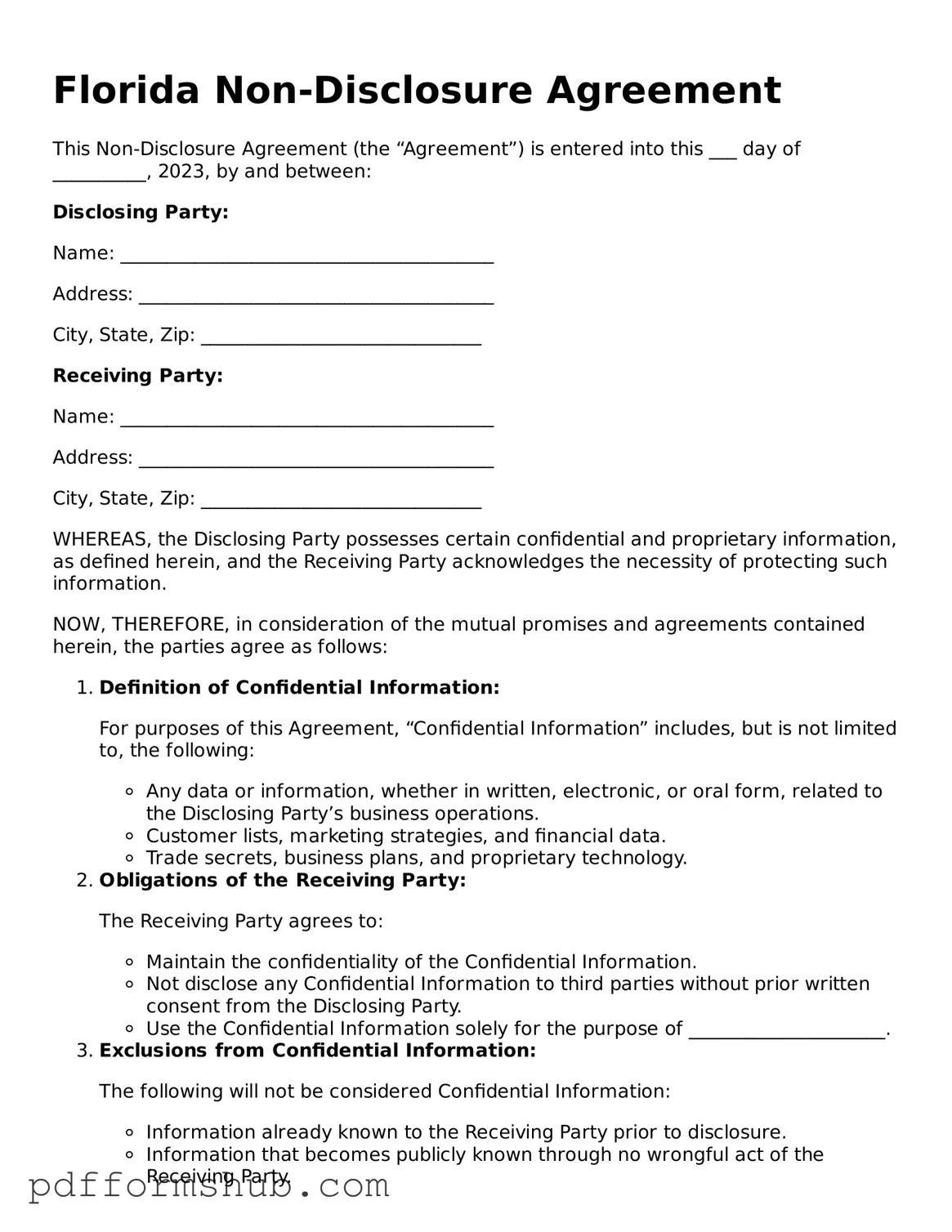Attorney-Verified Non-disclosure Agreement Form for Florida State
A Florida Non-disclosure Agreement (NDA) is a legal document designed to protect confidential information shared between parties. This agreement ensures that sensitive information remains private and is not disclosed to unauthorized individuals. If you need to safeguard your business secrets, consider filling out the form by clicking the button below.
Customize Form

Attorney-Verified Non-disclosure Agreement Form for Florida State
Customize Form

Customize Form
or
Free PDF Form
Short deadline? Complete this form now
Complete Non-disclosure Agreement online without printing hassles.